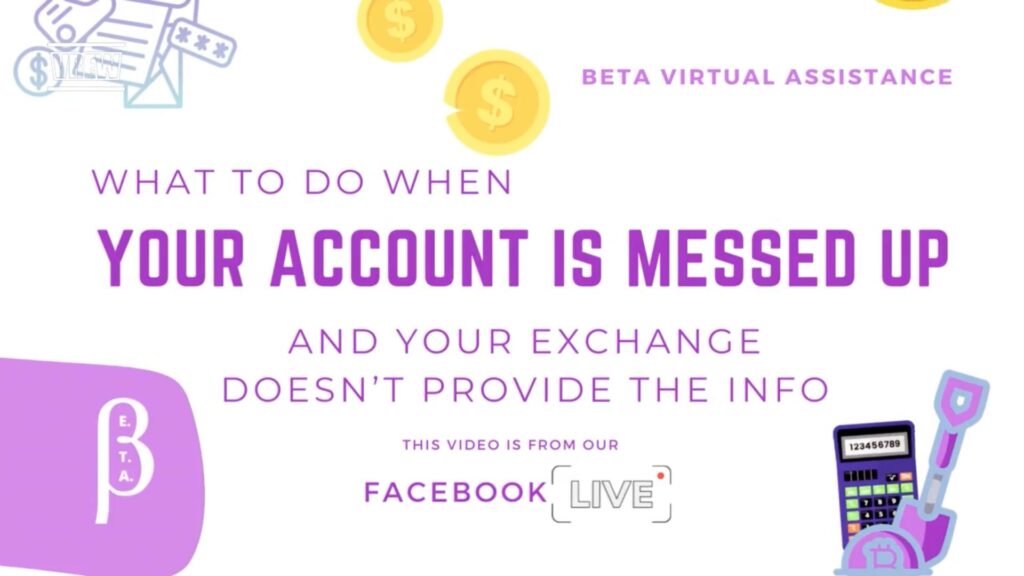
Today, we’re discussing crucial tax tips on what to do if your crypto exchange account experiences issues, vanishes, or simply doesn’t provide you with the information you need for tax reporting.
(This post is from our series of Facebook Lives. Catch the next one on our Facebook channel.)
Introduction
Welcome to another Beta Virtual Assistance Facebook live session.
The Importance of Account History
Imagine this scenario: You’ve been using a crypto exchange, and suddenly, the website disappears, the app stops working, or it appears to be insolvent. It’s a concerning situation, and you can’t access your transaction history or other essential data. This isn’t an isolated case; many crypto enthusiasts face similar issues.
Act Early and Keep Records

Our first recommendation is to act proactively. Don’t wait until tax season to gather your crypto records. Instead, keep detailed notes of every crypto-related activity you engage in. Whenever you open or close an account, make a record.
Download Your Data
The next step is to download your transaction history regularly. Some exchanges offer APIs for automated data retrieval, which is the best option. Alternatively, look for options to download your data as a CSV file or an Excel spreadsheet. In the worst-case scenario, take screenshots of your transaction history on the exchange platform. It’s not ideal, but it’s better than having nothing. These screenshots can be used later to recreate your data if needed.
Know Your Money Flow
One crucial aspect is knowing how much money you transfer into and out of your crypto accounts. Review your bank records to determine these amounts. This is a fundamental step to reconstructing your crypto activity.
Building a Reconstruction Strategy
If you find yourself without access to your exchange account history, there are several strategies to reconstruct your crypto transactions:
- Initial Investment: Start by noting the amount you initially invested in a particular exchange or protocol.
- Withdrawals: Keep records of any withdrawals you made from the platform.
- Transfer Traces: Identify if you transferred tokens within or outside of the platform. Missing trades can be estimated based on the value on those specific dates.
- Notes on Manual Trades: If you made manual trades and you remember the details, provide those to your tax professional.
- Periodic Balances: If the exchange provides balance snapshots, use those to estimate your crypto activities over time.

Conclusion
In the world of crypto investing, keeping meticulous records is essential for tax reporting. Whether you’re dealing with exchange issues or not, staying organized and proactive will save you from headaches during tax season. If you have any questions or need assistance in handling your crypto tax situation, feel free to reach out. We’re here to help.
Remember, we’re live on Tuesdays and Thursdays for tax tips and Saturdays for strategy tips. Additionally, check out our workshops and courses to enhance your crypto knowledge. Share this valuable information with anyone you think might benefit from it. Thank you for joining us today, and we look forward to assisting you further.
Did you read our previous post about crypto taxes titled: “Crypto Tax Tips: How to Navigate Different Types of Crypto Income“
Find out more about this topic by listening to our Audio podcast or watching our YouTube video below.





Leave a Reply